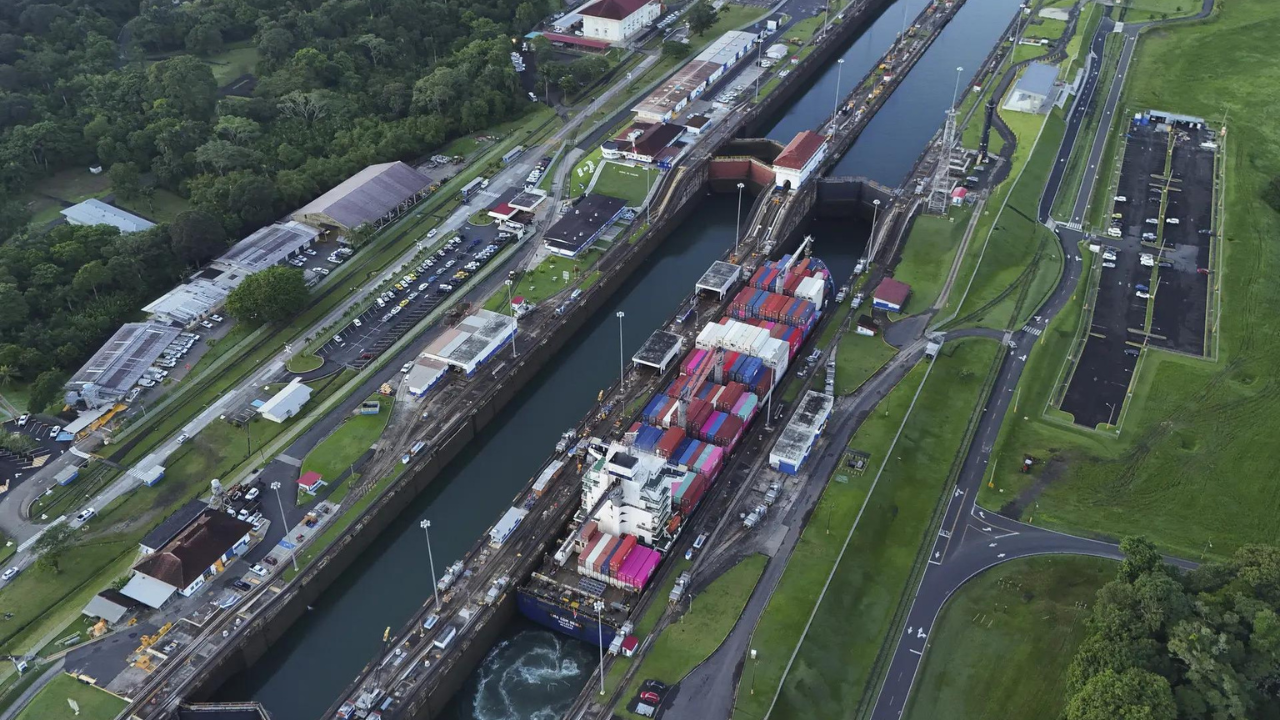Panama Canal Controversy: Trump's Bold Claim to Regain Control
Get ready for a geopolitical showdown! Former US President Donald Trump is stirring up a storm with his shocking demand to reclaim control of the Panama Canal, claiming unfair fees and expressing concerns about China's growing influence. This explosive statement is rocking the world, raising questions about international relations and the future of this crucial waterway.
Trump's Outrage: Unfair Fees and Chinese Influence
Trump's claims are nothing short of explosive. He alleges that the US Navy and commercial ships are being subjected to "ridiculous" fees by Panama, characterizing it as a "complete 'rip-off'" of the United States. He didn't stop there. He also voiced concerns over China's increasing involvement near the canal, claiming that the canal was "solely for Panama to manage, not China, or anyone else." These statements immediately sparked intense debate and global discussions about US foreign policy and strategic interests. The underlying implications of his statements suggest a recalibration of US-Panama relations and a renewed focus on asserting America's dominance in global trade routes.
Analyzing the Economic Implications
The Panama Canal's economic significance cannot be overstated. About 5% of global shipping traffic passes through this vital waterway, significantly affecting global trade and shipping costs. Trump's assertion that the fees imposed on US ships are exorbitant raises questions about the economic burden placed on American businesses. If the dispute isn't resolved soon it might lead to heightened trade tensions between the two nations with possible knock-on effects around the world.
A Look at the Legal and Historical Context
The Panama Canal's history is deeply intertwined with the United States. The US completed its construction in 1914. Control of the canal was transferred to Panama in 1999 under an agreement signed in 1977. Trump's demand for its return directly challenges this agreement and raises complex legal questions about international treaties and sovereignty. Considering the historical background, Trump's claim adds a layer of intricacy to the unfolding situation with historical context playing a critical role in how future disputes might be negotiated.
The Geopolitical Stakes: China's Growing Influence
Trump's concerns extend beyond mere economic grievances. He openly expressed anxieties about China's expanding presence in the vicinity of the Panama Canal, portraying it as a threat to US national security and strategic interests. This aspect underscores a wider geopolitical competition between the US and China over global influence and access to critical infrastructure and trade routes. It's not simply about tolls; it is a larger power play with global economic implications.
Navigating the Complexities of US-China Relations
The Panama Canal issue has highlighted the escalating rivalry between the US and China over influence and control of critical infrastructure across the world. The strategic implications are immense. Whoever wields influence over this important maritime transit route controls the flow of critical goods, bolstering trade relationships, economic strength, and establishing a global dominance. These elements add yet another complex layer to understanding the context in which Trump's statements should be understood.
Potential Consequences and Future Outlook
Trump's statements have unleashed a wave of uncertainty over the future of the Panama Canal. The dispute raises major concerns about potential disruption to global trade and heightened tensions between the US and Panama. The potential consequences include increased shipping costs, trade disruptions, and escalation of US-China rivalry. We've already seen reactions from global experts, political commentators, and trade unions. Many worry about a potential global impact that is difficult to predict but certain to be felt around the world.
Predictions for the future and the importance of dialogue
Trump's statement underscores the growing geopolitical importance of the Panama Canal, and it will likely prompt a renewed examination of international maritime agreements and relations. While the feasibility of Trump's demand to return control of the canal remains debatable, it reveals growing unease within the US towards its role in maintaining strategic international influence in the face of assertive competitors. The global trade, already impacted by rising energy prices and supply-chain challenges, awaits the resolution of this controversy and the consequences for its future flow and costs.
Take Away Points
- Trump's bold demand to regain control of the Panama Canal has ignited a major geopolitical controversy.
- The dispute highlights concerns over unfair fees, China's increasing influence, and the future of this vital waterway.
- The economic and geopolitical consequences of this dispute could be significant.
- The situation demands diplomatic solutions and discussions aimed at resolving the dispute through peaceful negotiations to protect the global trade and keep the lines of communication open for cooperation between all parties involved.









